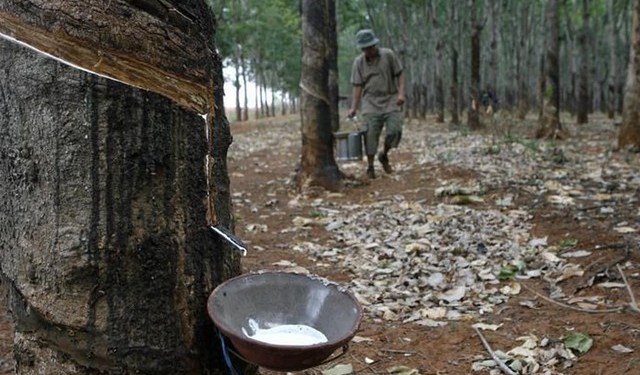A network of Thai rubber farmers said on Tuesday that it had accepted a government subsidy offer aimed at ending recent mass protests that erupted into violence last week.
Thailand is the world’s top exporter of natural rubber and anger among the kingdom’s rubber farmers over their falling incomes had posed a growing challenge to Prime Minister Yingluck Shinawatra’s two-year-old government.
Deputy government spokeswoman Sunisa Lertpakawat said the cabinet on Tuesday approved a budget of 21.25 billion baht ($660 million) to subsidise rubber farmers.
“Today’s decision comes ahead of a mass rally by rubber farmers (this weekend) which could severely affect the economy,” Sunisa told a news conference.
An apparent compromise was struck Tuesday after the government agreed to pay farmers 2,520 baht ($80) per rai (0.4 acres, 0.16 hectares) of rubber plantation to help with production costs — double its previous offer.
In a statement, a grouping of rubber farmers in 15 provinces accepted the deal in principle and called off their next protest which had been planned for this weekend.
“I can confirm that there will be no rally on September 14,” one of the protest leaders, Karjbandid Ramas, told AFP by telephone.
It was unclear, however, if all of the various factions of rubber farmers would accept the offer to help cope with a plunge in rubber prices, which have roughly halved since 2011.
In recent weeks angry rubber farmers have blocked roads, train lines and even — briefly — the entrance to an airport in Thailand’s south where plunging global prices for the commodity have hit the local economy hard.
Last Thursday more than two dozen police officers were injured and 11 protest leaders were arrested as a demonstration in one part of southern Thailand turned violent.
The farmers have accused the government of ignoring their plight while spending billions of dollars on a rice price guarantee scheme seen as mainly benefiting ruling party supporters.
The government had previous said another generous price guarantee scheme was something it could not afford.
The network urged the government to speed up payments and to send a representative to southern Thailand to sign a formal agreement by Friday.
Source: AFP



























